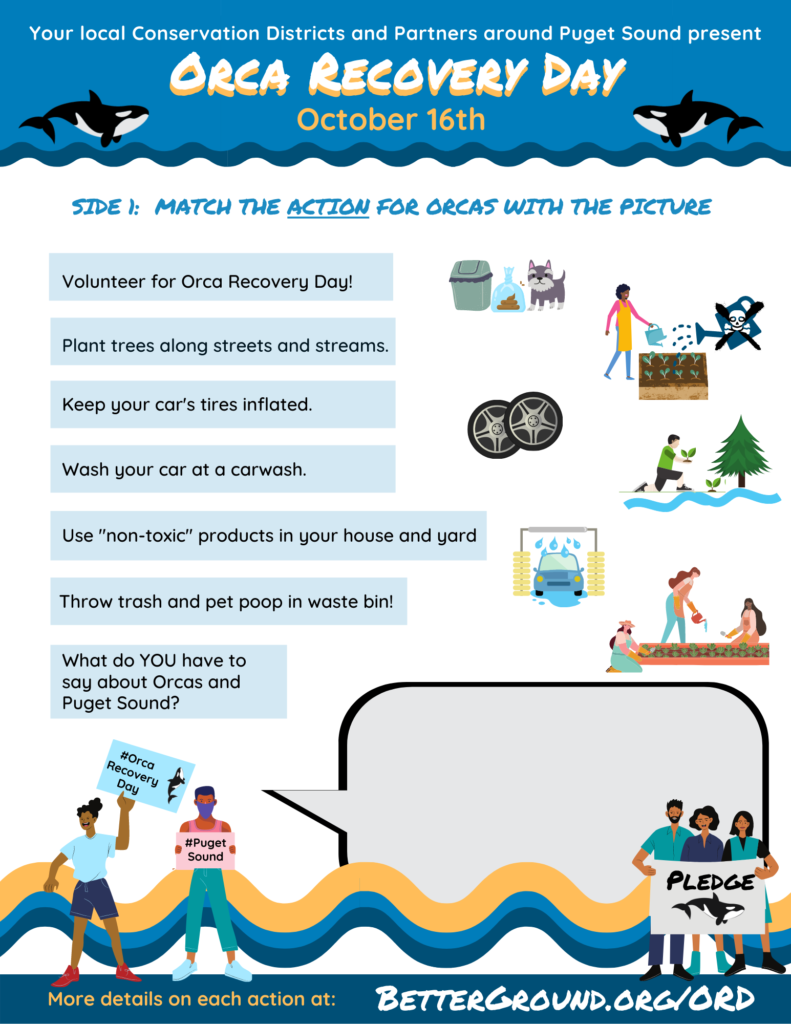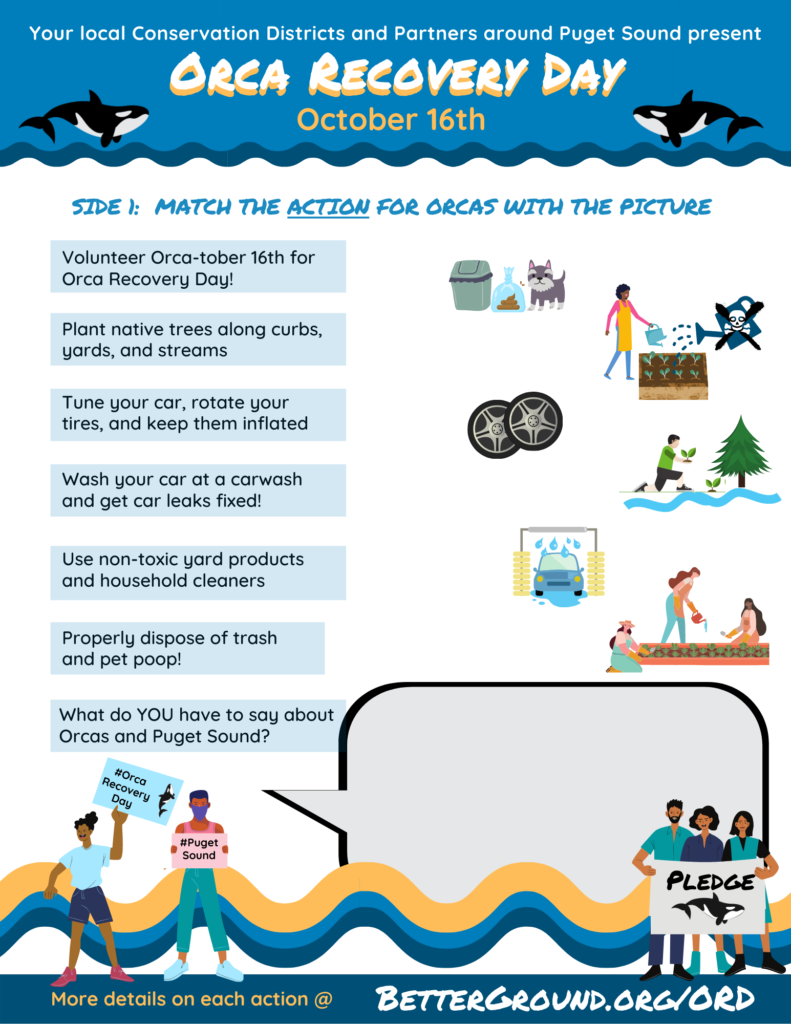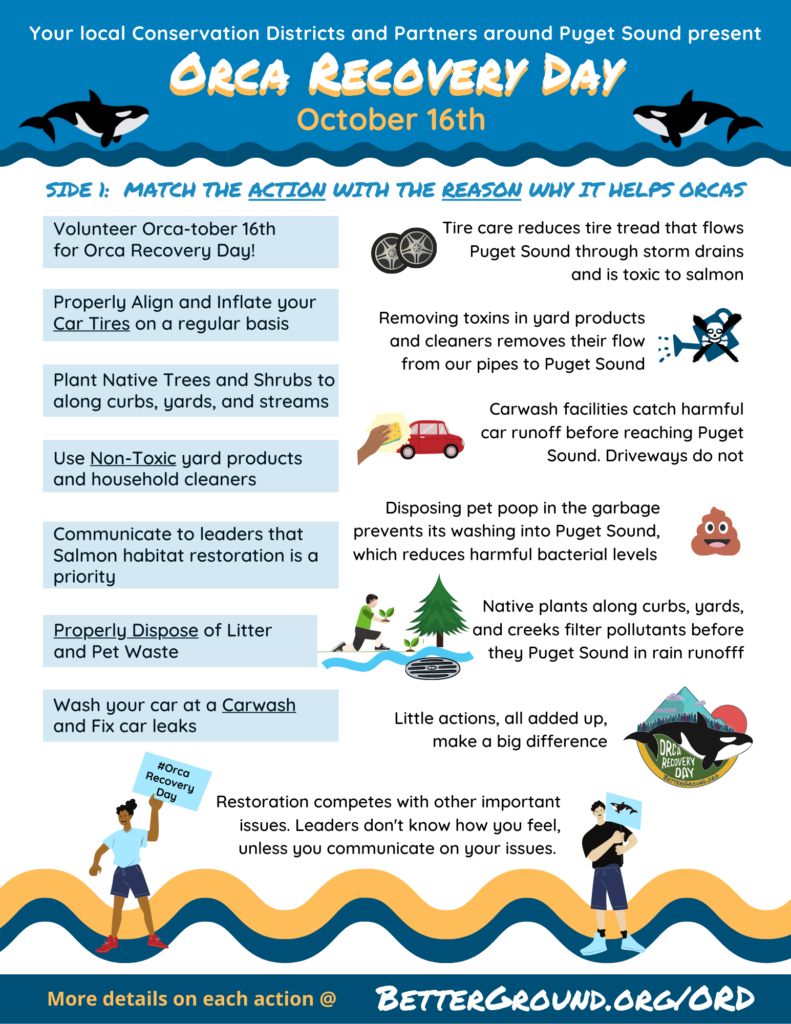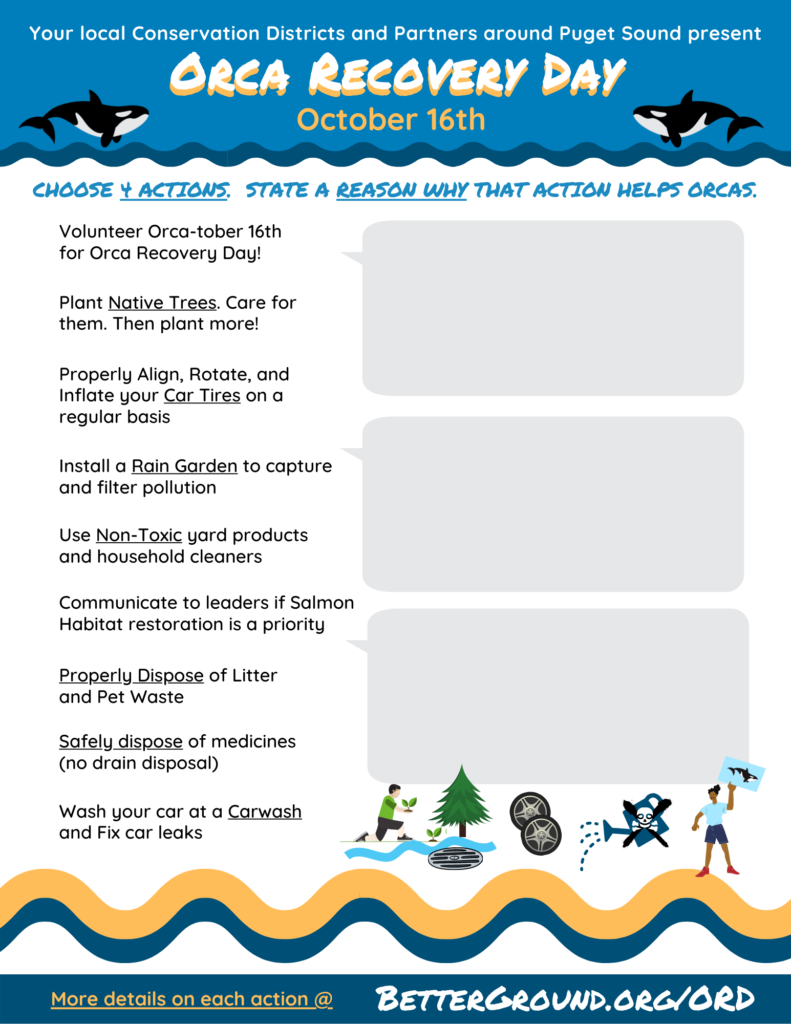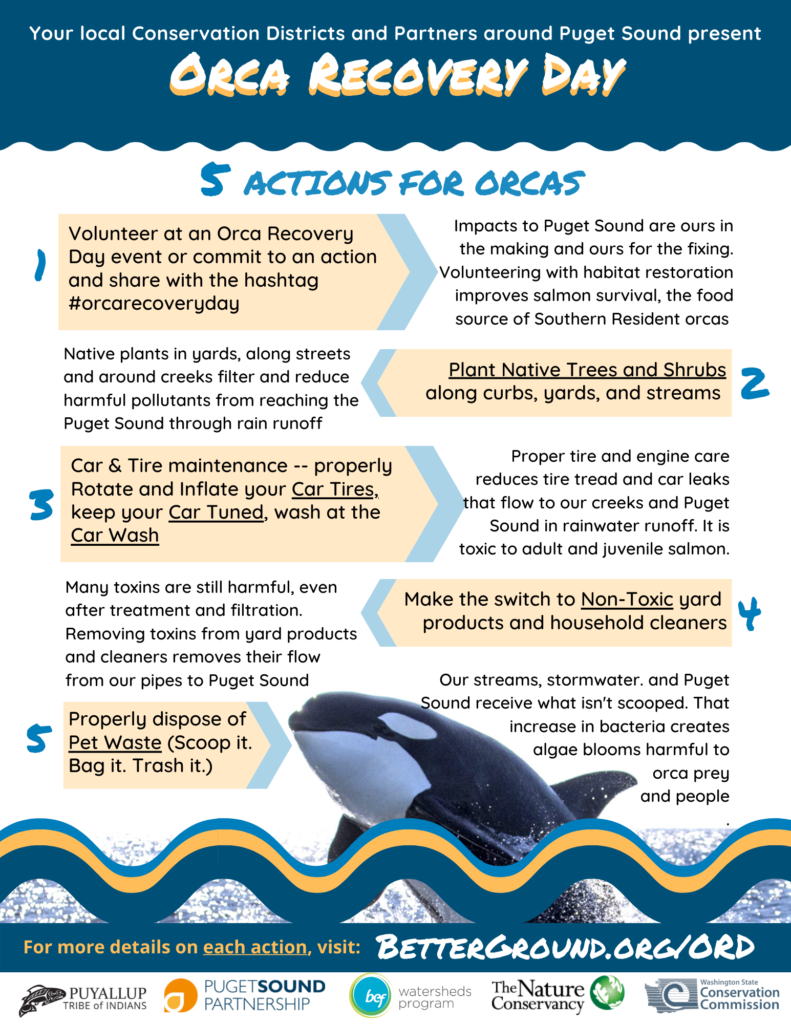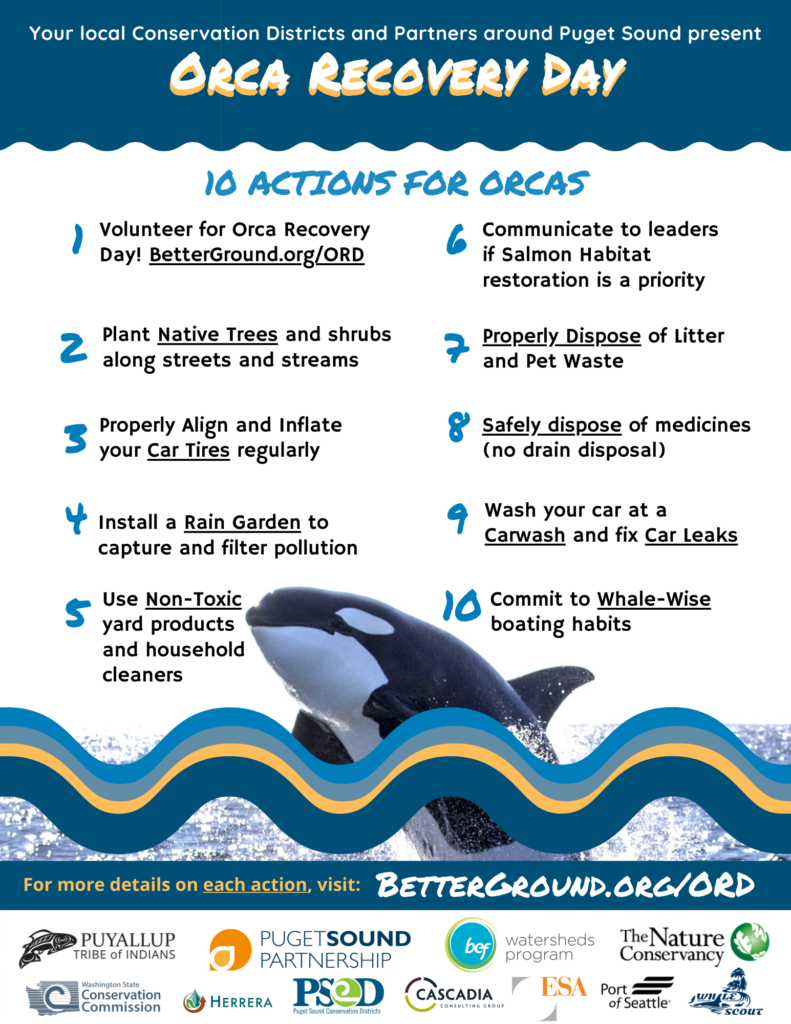Actions You Can Take
Your actions matter.
Puget Sound’s Southern Resident Killer Whales (SRKW) are critically endangered. Puget Sound Conservation Districts work every day to make conditions better for local orcas and are now presenting a region wide event to give everyone the opportunity to join in this work.
The single biggest threat to our local orca whales is that their primary food source, Chinook Salmon, are also endangered. Eighty percent of the Southern Resident Killer Whale diet is salmon. Due to habitat degradation and increasing pollution, local salmon populations are a fraction of what they used to be. So, what can you do?
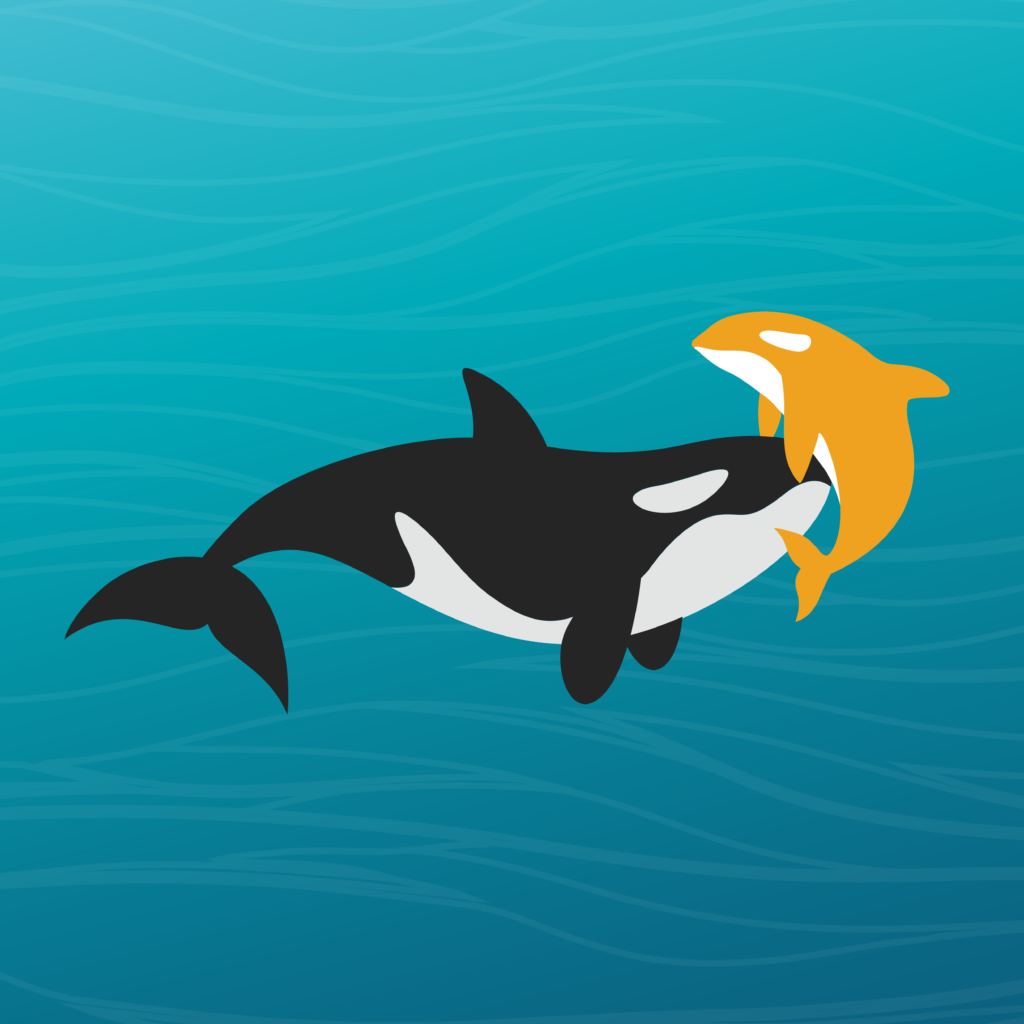
Southern Resident Orca Recovery Website
To address the dire circumstances of the struggling orca population, Governor Jay Inslee established the Southern Resident Killer Whale Task Force. This task force is comprised of about 50 members from state agencies, the Legislature, tribal and local governments, businesses, and nonprofits, to develop a long-term plan to recover Southern Resident orcas. Visit the website to learn more about what the state is doing to recover this unique species.
Orca-tober activities for Grades 1-8
If you can't attend an event near you, here are some actions you can take at home!
Take the Pledge to Give Them Space
Boaters! Take the voluntary pledge to stay 1/2 nautical mile away from southern residents. Give the whales the space they need to forage, rest and tend their young.
Support Funding for Salmon Habitat Restoration
Your local Conservation District works every day to implement solutions, but the budget shortfall for Puget Sound recovery work is significant and consistent. If Orcas, the salmon they survive on, and the health of Puget Sound are all important to you, then let your political leaders know that you support those priorities and the funding that Conservation Districts and local partners rely upon:
Reduce Pollution
Over 14 million tons of pollution ends up in Puget Sound every year, most of which is because of all the rain we get. Rain isn’t the culprit though, we are, and all the stuff we leave behind that the rain carries into our streams and on into the Sound. One way to think of it is for every 1,000 square feet (roughly the size of your driveway), 24,000 gallons of stormwater ends up in the Sound. There are many ways to reduce pollution, but one way is through Depave Puget Sound: reduce paved spaces, add some greenery back into our lives and improve conditions for salmon and orcas. Win-win-win.
Get Involved in Local Restoration Work
Organizations across the region, from Conservation Districts to Salmon Recovery Lead Entities, to Salmon Enhancement Groups and state agencies are working everyday to restore salmon habitat, and they all could use the help of volunteers like you.
Small Actions Make a Big Difference
Washing your car in your driveway, not picking up after your pets, or putting fertilizer on your lawn might not feel like that big of deal. Multiply your daily actions by the 4 million people that live in Puget Sound though and the impact is profound. It’s our collective impact that have led to this crises, but it’s also our collective impact that will fix it.
Install a Rain Garden
Our region is recognized for the amount of rain it gets, and all of that water collects the pollutants from roofs, yards, and driveways and washes it into local streams and ultimately Puget Sound, unfiltered. A rain garden can help capture some of that runoff, collect it, and infiltrate it back into the ground before it has a chance to carry pollution to our local waterways.
Own Waterfront Property? Make it Shore Friendly
Your District may have its own Shore Friendly program, but Mason Conservation District and Kitsap County both have one and you can reach out them for more info. King Conservation District also has an incentive program. Why do shorelines matter to Orcas? Salmon are also a food source for seals and sea lions, but if we restore our shorelines, there will be more forage fish such as sand lance and smelt, giving the seals and sea lions more food and therefore more salmon for the Orcas. Puget Sound has 7,500 miles of shoreline, 2,500 of which has been degraded by development.
Use Natural Yard Care Practices
Everybody likes having a green lush lawn. Often what that means though is adding a bunch of fertilizers, pesticides and other harmful chemicals to our lawn. Again, because of all our rain, all those chemicals eventually end up in Puget Sound. Natural Yard Care is easy, just ask Kasey Keller.
Learn More
Killer Whale Information by NOAA Fisheries
Educational Materials for Classrooms by NOAA Fisheries

